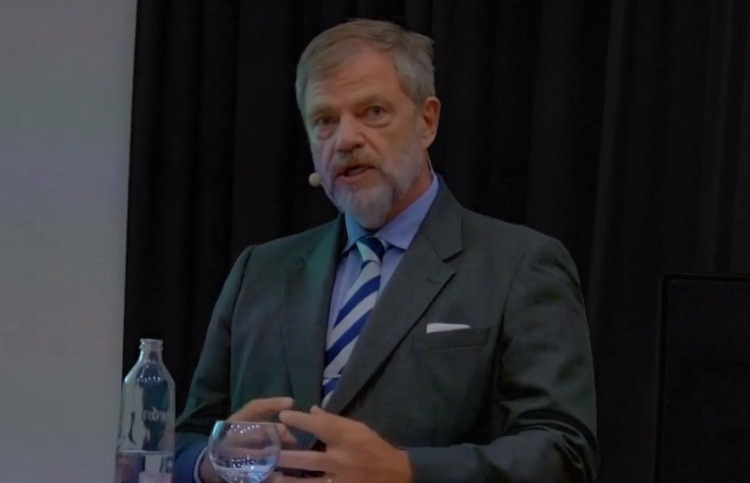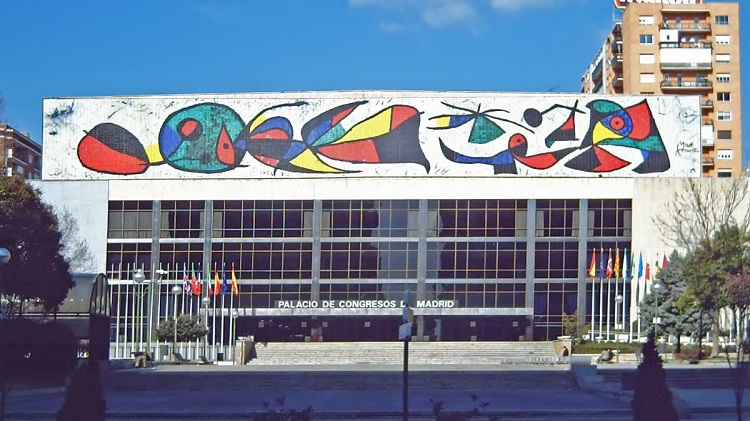Eduardo González
The German ambassador in Madrid, Wolfgang Dold, assured yesterday that the new political cycle that opens in his country after Sunday’s legislative elections will not affect relations with Spain, which will maintain the same tone as until now “regardless of which is the coalition government”.
“The results have not been a surprise, they are those predicted in the polls,” said the ambassador during his speech at the digital debate Goodbye Merkel, what now?, organized by the German Embassy in collaboration with the Goethe Institut and RTVE.
“Now begins a longer road of negotiations and consultations to form a coalition government,” but “the era of the two big parties may be over, because the difference between them and the small parties has leveled out and, for the first time, we will have a tripartite coalition,” added Dold. Following the election results, the two hegemonic big parties – the Social Democrats (SPD) of Olaf Scholz and the Christian Democrats (CDU) of Armin Laschet – will try to take over the government after complex political negotiations in which the Greens and the Liberals will hold the key to governability.
In any case, the ambassador was convinced that, whatever the outcome of the negotiations for the formation of a government, relations between Spain and Germany will not change. “Our relations do not depend on who leads the parties because they have value in themselves,” he declared. “They are going to continue the same, regardless of the coalition government, because they are close relations, with a tradition and with strong business activity in both directions, and they are not going to be worse or better with one coalition or another,” he added.
“We should not exaggerate the importance of political affiliations in international relations,” he warned. “The friendship between Felipe González (Socialist) and Helmut Kohl (of the CDU) went beyond party affiliations and the same is true between Pedro Sánchez (the current Prime Minister, of the PSOE) and Angela Merkel (the outgoing Chancellor, of the CDU), although they belong to very different political camps, that is very relative”, he added.
As for the legacy Angela Merkel has left in her country after 16 years in power, Wolfgang Dold highlighted her “sense of responsibility to achieve results in the EU through negotiations that are almost always long.” “In the EU we have to reach agreements unanimously for practically all important things and between countries with completely different perspectives, and this enormous effort and determination to achieve the middle ground between the 27 and to advance the European project is one of the legacies of the last 16 years in Germany,” he said.
In any case, the ambassador warned that, whoever governs in Berlin, including the Social Democrats, it is not foreseeable that Germany will “radically” modify its position in favor, “not of austerity, which is a very popular word in Spain but not in Germany, but of fiscal consolidation and fiscal responsibility.” “We have to look for some form of agreement to develop and deepen fiscal union in the EU, but fiscal consolidation and fiscal responsibility are going to remain the guiding thread of Germany’s European policy,” he added.
Dold was also convinced that, like the Merkel government, the future coalition government will continue to advocate new formulas for EU decision-making in foreign policy. “The outgoing government was in favor of majority voting (as opposed to unanimity) at least for some international policy issues, and the position of the future government will probably follow this path of seeking a formula that will make it possible to reach common positions more quickly in international affairs,” he said.







